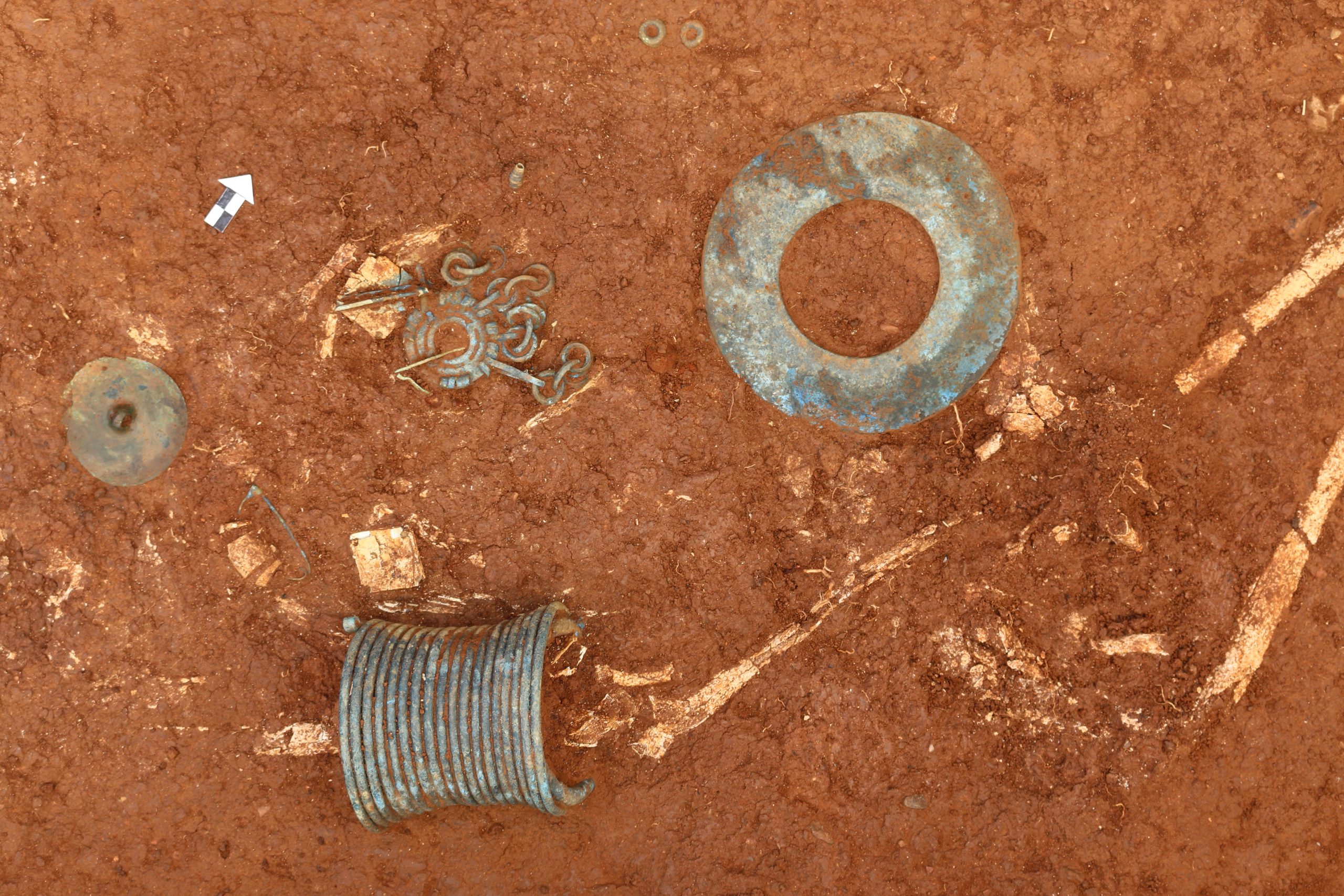Past Identities
H18:00-19:30
Entrance: Via Liguria 20
‘I pomeriggi series 2021/2022’
H18:00-19:30
Entrance: Via Liguria 20
‘I pomeriggi series 2021/2022’
The event will be held in Italian at H18:00 in Rome and online.
Register to attend here.
Register on Zoom here.
I pomeriggi series 2021/2022
I pomeriggi 2021/2022 at Istituto Svizzero is a series dedicated to our fellows. It is an opportunity for the public to learn more about the projects they are working on during this year’s residency.
The event is curated by Ilaria Gullo (Fellow Roma Calling 2021/2022, Archaeology).
Past Identities. Sul concetto di identità in antropologia e archeologia funeraria
Since the dawn of archaeology as an academic discipline, funerary contexts have been an invaluable source from which the study of ancient civilizations draws. The development of new archaeological and anthropological methods of analysis in the twentieth century has shaped the specialization of funerary archaeology: through the analysis of necropolis, structures, furnishings and human remains, the aim is to reconstruct funerary practices and rituals, i.e. intentional gestures, dictated by social norms and religious beliefs and considered identity traits of ancient communities.
In recent years, the concept of identity has become a popular topic in archaeological research, especially in the interpretative discourse of funerary contexts. The term ‘identity’ has been introduced since the middle of the last century in various fields of research, such as the social and political sciences, until it became established in the common everyday lexicon. In frequent use, the term ‘identity’ has taken on different notions and meanings, to the point of constantly needing a clear definition.
What do we mean when we speak of identity in funerary archaeology? What methodology is applied in the analysis of the anthropological and archaeological record to determine past identities? And why do we aspire to determine them?
Rather than opening a general discussion on the term ‘identity’, this panel discussion aims to offer the audience an impression of the modus operandi of archaeological research when confronted on the interpretive level with the materiality of the find and the intangibility of the concept of identity. Dr. Reine-Marie Bérard and Dr. Francesco Quondam, will illustrate the potentialities and the limits of the anthropological and archaeological methodology related to the question of identity, through the consideration of case studies of Magna Graecia and Sicilian funerary contexts (between the 8th and 6th centuries BC). A discussion moderated by Ilaria Gullo will follow.
Programme:
H18:00-18:10 – Maria Böhmer (Head of Science Istituto Svizzero), Welcome
H18:10-18:25 – Ilaria Gullo (University of Basel/Istituto Svizzero), Welcome
H18:25-18:45 – Reine-Marie Bérard (French National Center for Scientific Research, Aix-en-Provence)
H18:45-19:10 – Francesco Quondam (University of Vienna)
H19:10-19:30 – Discussion moderated by Ilaria Gullo
Biographies:
Reine-Marie Bérard earned a PhD in Archaeology from the University Paris 1 Panthéon Sorbonne in 2014 and has been former member of the French School of Rome from 2014 to 2018. Currently she is a researcher at the French National Center for Scientific Research, member of the laboratory ‘Centre Camille Jullian’ in Aix-en-Provence. Historian and archaeologist specializing in funerary archaeology, her research leads mainly on the funerary practices of the Western Greeks (Magna Graecia and Sicily) but also on the methods of archaeotanatology for the study and knowledge of ancient societies. She published in 2017 the volume Megara 6.2. La nécropole méridionale de la cité archaïque. Archéologie et histoire sociale des rituels funéraires (taken from her doctoral thesis on the necropolis of Megara Hyblaea) and edited in 2021 a second volume on The Right to Burial in the Ancient Mediterranean, taken from the study days she organized at the French School in Rome. Since 2019, she has been co-director of the French archaeological mission to Megara Hyblaea, with Henri Tréziny († 2021) and Jean-Christophe Sourisseau.
Ilaria Gullo received an MA in Classical Archaeology and History of Antiquity from the University of Zurich. A PhD student in Classical Archaeology at the University of Basel, her thesis is part of the FNS Investigating Colonial Identity project. Her research deals with funeral rites in the VI century B.C. in Sibaritide (North-eastern Calabria) on the basis of finds in the Macchiabate necropolis (Francavilla Marittima, CS). In Rome she continues her project investigating the socio-cultural dynamics of that area and the identity of its community through the study of their funeral rites.
Francesco Quondam holds a degree and a PhD from the Sapienza University of Rome. His main research interest focuses on the early Iron Age civilizations of peninsular Italy and Sicily, with particular regard to the South. He has participated in numerous excavations, among which the one of the north-eastern slopes of the Palatine in Rome stands out. After a period of research assignment at the University of Basel he is currently working at the University of Vienna.

Dettaglio della deposizione di tomba Est 9 © Progetto Francavilla Marittima Macchiabate, Università di Basilea